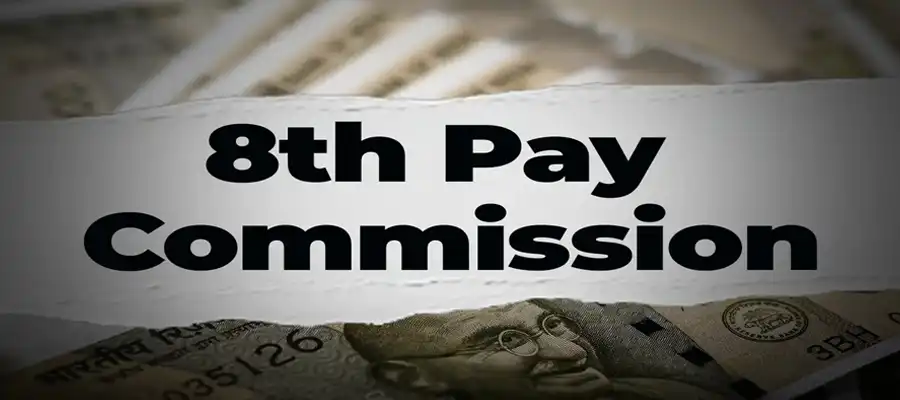On, 16th January, Thursday, the central government took a big decision in the favour of government employees. In the cabinet meeting chaired by Prime Minister Narendra Modi, the government has approved the formation of the Eighth Pay Commission.
PM Narendra Modi shared a post on X, announcing about the 8th Pay Commission. The post reads, “We are all proud of the efforts of all Government employees, who work to build a Viksit Bharat. The Cabinet's decision on the 8th Pay Commission will improve quality of life and give a boost to consumption.”
This will benefit around 45 lakh central employees and 65 lakh pensioners. The term of the Seventh Pay Commission will end on 31st December 2025. The term of the Eighth Pay Commission will start from 1st January 2026.
Information and Broadcasting Minister Ashwini Vaishnav said that it will be ensured that the recommendations of the new Pay Commission are received before the completion of the term of the Seventh Pay Commission.
After independence in 1947, seven pay commissions were formed. The previous commission had put a burden of Rs 1 lakh crore on the government. It is estimated that Rs 2 lakh crore will come into the economy through the new pay commission.
What is the potential increase in the highest salary?
The basic salary of the highest-grade secretary level officer is Rs 2.5 lakh. Dearness allowance is not added to their salary. Therefore, on the basis of the fitment factor of 2.57, their salary will increase to Rs 6.40 lakh in the 8th pay commission. (The fitment factor is used to calculate the revised basic salaries and basic pensions for government employees.)
Impact on gratuity:
The maximum limit of gratuity is Rs 30 lakh. If the government does not increase it, it will remain the same. Central employees get home loan equal to 34 months' basic salary at an interest rate of only 8.5%. In the 6th pay scale, this loan amount was Rs 7.5 lakh. In the 7th pay scale, it increased by 3.2 times and reached close to Rs 25 lakh. In the 8th pay scale, it will increase up to Rs 80 lakh.
How will the pension amount increase?
In the 6th pay scale, the pension was increased by 14% and in the 7th by 23.66%. Based on this formula, this time the pension will increase by a minimum of 34%. It implies that now the basic pension will increase to Rs 40,000-27,200, that is, Rs 67,200.
What will be the impact on private jobs?
Whenever the salaries of government employees have increased, the private sector has also seen a 5% to 8% salary hike. This change was seen after the implementation of 7th Pay Commission. Many private companies changed their salary structure according to government salary structure.
According to the data of the Income Tax Department, the total personal income from salary in the country was Rs 13.96 lakh crore in 2016-17. After the implementation of the seventh pay commission, personal income from salary increased to Rs 15.94 lakh crore in 2017-18. It implies that there was an increase of 14.18%.
According to DK Srivastava, Chief Policy Advisor of Invy India, the seven pay commissions introduced since 1947 not only has increased government expenditure, but also has improved the financial condition of millions of people. Government expenditure increased by Rs 1 lakh crore in the 7th pay commission.
